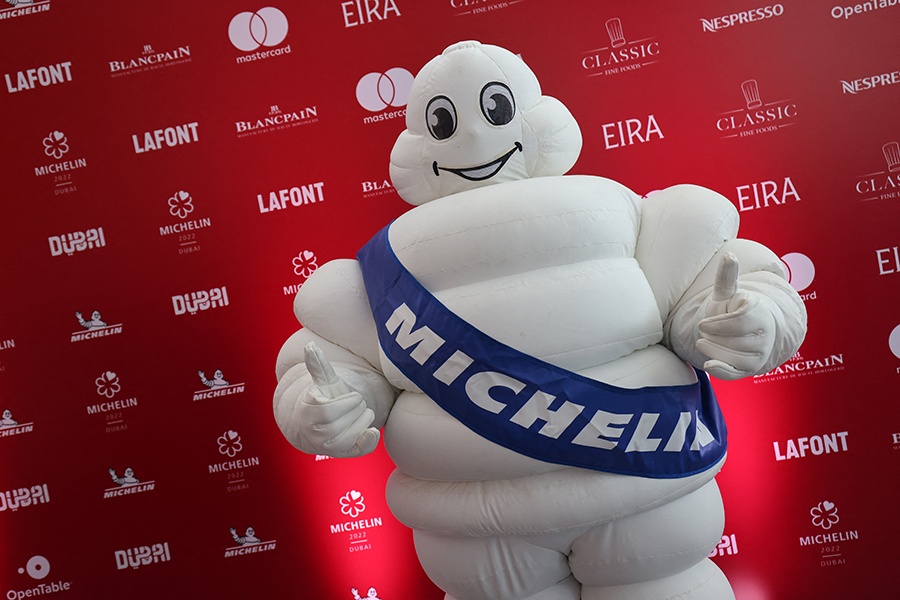The Michelin Guide Is Coming to Boston. Cool?
There are pros and cons to the international guide adding our dining scene to its arsenal.
This story was originally published on May 9. It has since been updated to include official confirmation and additional information via press releases from Michelin, Meet Boston, and the Cambridge Office for Tourism.
The Michelin Guide is officially coming to Boston. When this story was first published on May 9, the Boston Business Journal had reported that the company that grants coveted where-to-eat stars to restaurants around the globe—well, in specific regions, some of which pay for the privilege, to the tune of hundreds of thousands of dollars—was “in negotiations on a partnership with Meet Boston,” our city’s convention and tourism bureau. Today, Michelin confirms the news, announcing that Boston and Philadelphia will both be added to the Northeast Cities edition of the guide in 2025, joining Chicago, New York City, and Washington, D.C. More specifically, the guide will touch on Boston proper as well as Cambridge, Somerville, and beyond (within the Route 95/128 corridor), per reporting by the Globe and a release from Meet Boston, which collaborated with the Cambridge Office for Tourism to seal the deal. (Partnerships with tourism boards are for promotional and marketing purposes only, says Michelin; the actual restaurant selection is independent.)
The Michelin Guide—yep, that’s the same Michelin as the French tire company with the creepy-yet-lovable mascot, Bibendum, a Stay-Puft-esque stack of white tires—has been around in some form since 1900. It started as a guide to travel essentials (garage, gas station, and hotel addresses, for example), expanding to include starred dining recommendations in 1926. These days, Michelin releases guides from Finland to France, Thailand to Turkey, and beyond. Restaurants are annually assessed by anonymous inspectors (former restaurant and hospitality professionals who work full-time for Michelin now) and potentially granted one, two, or three stars, with three being the best, given for “superlative cooking of chefs at the peak of their profession” with “some of their dishes … destined to become classics.”
Despite that description, the stars are technically awarded to the restaurant, not the chef. While “Michelin-starred chef” is often seen in restaurants’ marketing materials, it’s a bit of a misnomer, although it’s certainly an indication of a chef’s talent if a restaurant received or maintained stars under their management.
Beyond the traditional stars, there’s a new Green Star award, introduced in 2020, that honors “role models when it comes to sustainable gastronomy.” Plus, there are “Bib Gourmand” picks—typically more casual restaurants than the starred ones that offer “simple yet skillful cooking at an affordable price.”
In all cases, Michelin inspectors work from five criteria, involving the ingredients, flavors, cooking techniques, consistency, and “the personality of the chef as expressed through their cuisine.” Notice anything missing? When it comes to star ratings, Michelin doesn’t care about service, décor, or the other little details. It’s all about the food. (We wonder what would happen if a place like Dick’s Last Resort, may its Boston location rest in peace, suddenly started turning out Michelin-quality food, slammed onto the table by a server insulting the customers. Could that warrant a star?)
There are pros and cons to inclusion in the Michelin Guide: increased visibility and the prestige of the global recognition brings more diners, to be sure, but also more pressure and competition, not to mention potential loss of business for unstarred restaurants compared to their starred neighbors. So, Michelin’s addition of Boston to its arsenal of guides comes with mixed feelings—and endless speculation about who deserves a star, who’ll actually get one, and so on. (Like any good Boston Redditor, we’re pulling for Papa Gino’s.)
While we wait to find out what an anthropomorphic stack of tires deems worthy in our city’s dining scene (with the aid of some tourism bureau cash), let’s not forget that there are other ways to find out what’s worth eating. The 2025 James Beard Awards are coming out in a few short weeks, for example; here are the nominees from Greater Boston and elsewhere in New England. And we’d be remiss if we didn’t plug our very own annual Top 50 Restaurants list, chock full of our favorite special-occasion spots. But most importantly, just get out and explore the food in your own neighborhood and areas you haven’t spent much time in. Take some pointers from the stars and awards and lists, if you’d like, but just get out and eat.



